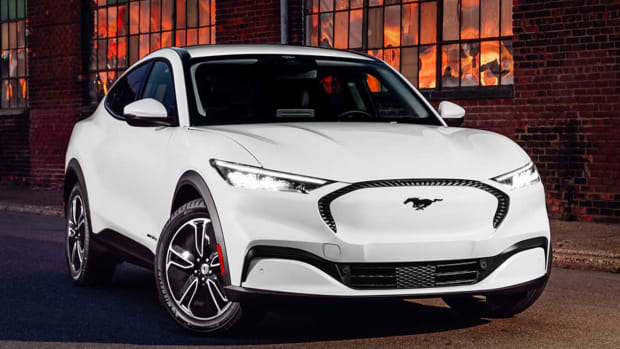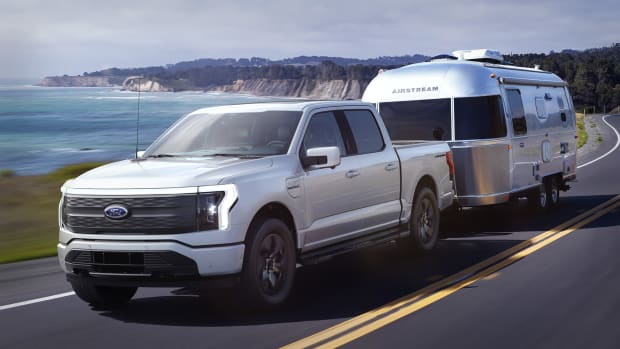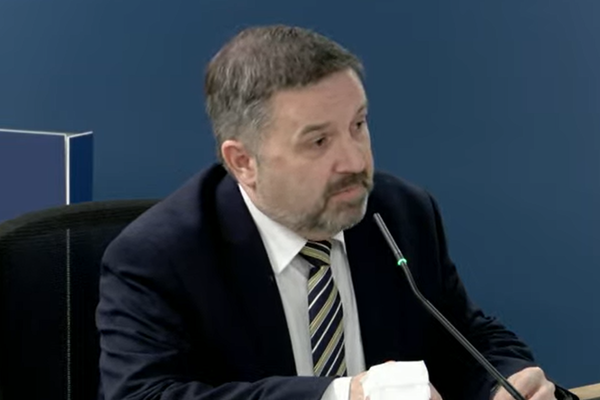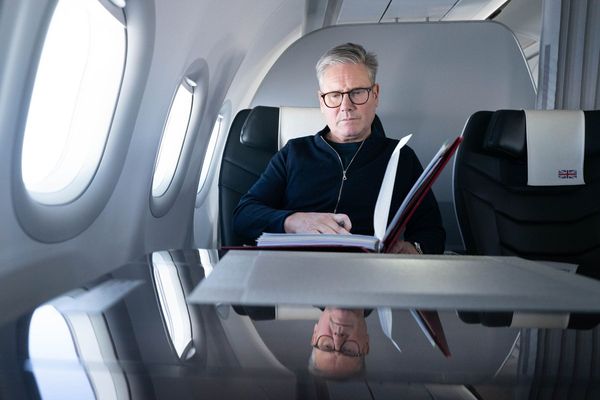You have to turn the mill when the wind blows, so the saying goes. In other words, you must seize the opportunities when they present themselves.
Ford Motor (F) seems to have adopted this adage and intends to apply it to the letter.
The Dearborn, Mich., automaker is determined not to give up its chance to successfully and quickly transition into an electric-vehicle manufacturer.
The company recently announced an unprecedented reorganization of its activities, betting on separating its internal-combustion-engine operations from those of electric-vehicle development.
Parent Ford now oversees two entities - Ford Blue and Ford e. This poker move was hailed by industry experts and the markets.
Ford wants to capitalize on this positive impression of a company that is moving, rushing to close the gap with Tesla (TSLA) in the very lucrative segment of electric vehicles, whose medium-term prospects are rosy.
The recent surge in oil prices that has led to soaring gasoline prices at the pump has finally convinced some consumers who have been incensed by the high prices of electric vehicles to take the plunge, industry observers say.
The problem is no longer demand but rather supply. Not enough electric vehicles are available to meet consumers' inquiries and orders.

Ford
The Big Bet
Ford wants to capitalize on this demand. The automotive giant has decided to introduce seven new EVs in Europe by 2024: three passenger vehicles and four commercial vehicles.
The company plans to sell more than 600,000 electric vehicles in the region by 2026, according to a news release.
Ford is going to double to $2 billion its planned investments into its main European production site in Cologne, Germany, where it also intends to build a battery development plant.
The acceleration in Europe supports Ford’s goal to sell more than 2 million EVs globally by 2026 and deliver a company adjusted-profit margin of 10% based on earnings before interest and taxes, the company said.
“Our march toward an all-electric future is an absolute necessity for Ford to meet the mobility needs of customers across a transforming Europe,” said Stuart Rowley, chairman of Ford Europe.
Ford plans to go all-electric in Europe by 2030, aiming to sell only battery-powered cars there by that time.
The automaker currently markets one electric vehicle in Europe: the all-electric Mach-E. It has a variant, the Mach-E GT. The company plans to launch the E-Transit in the second quarter of 2022.
From there, things will go quickly.
Starting in 2023, Ford will begin production of an all-new electric passenger vehicle, a medium-sized crossover, built in Cologne. This car will be a five-seat, medium-sized crossover, with a 500km (300-mile) driving range on a single charge.
The vehicle and its name will be disclosed later in 2022, Ford said.
A second electric vehicle will be added to the Cologne production lineup in 2024.
In addition, Ford’s top-selling passenger vehicle in Europe, the Ford Puma, will be available as an electric version made in Craiova, Romania, starting in 2024.

Ford
Playing as Equals With Tesla and Volkswagen
Ford's announcements come shortly after nearly identical developments from two of its main rivals.
Tesla (TSLA)has just obtained the permit to officially start the production of vehicles in its Berlin Gigafactory, which will serve the European market. The first deliveries of vehicles are planned there on March 22, as TheStreet has reported..
As for Volkswagen (VWAGY), the German giant planned to spend some $2.2 billion to build a new manufacturing facility for its Trinity electric vehicle. That will be built near its main plant in Wolfsburg, 140 miles away from Tesla's plant.
Construction is to begin as early as spring 2023, with the net carbon-neutral Trinity model rolling off the assembly line from 2026.
Ford is betting on SUVs and crossovers because this segment of the market is doing quite well. In 2021, sports utilities and crossovers accounted for 58% of all Ford passenger vehicles sold on the Continent, up nearly 20 percentage points from 2020.
Ford’s iconic Transit range will include four new electric models: the all-new Transit Custom one-tonne van and Tourneo Custom multipurpose vehicle in 2023, and the smaller, next generation Transit Courier van and Tourneo Courier multipurpose vehicle in 2024.
“These new Ford electric vehicles signal what is nothing less than the total transformation of our brand in Europe – a new generation of zero-emission vehicles, optimized for a connected world, offering our customers truly outstanding user experiences,” said Rowley.
Ford has also unveiled an agreement to build a battery development plant for commercial vehicles with a Turkish partner, Koc Holdings AS, the largest Turkish conglomerate.
This new factory will be built near Ankara, and production could start by mid-decade if the negotiations reach an accord. A third player in this adventure is SK Innovation of South Korea, with which Ford has already formed a joint venture. Annual capacity is likely going to be in the range of 30 to 45 gigawatt hours, Ford said.







